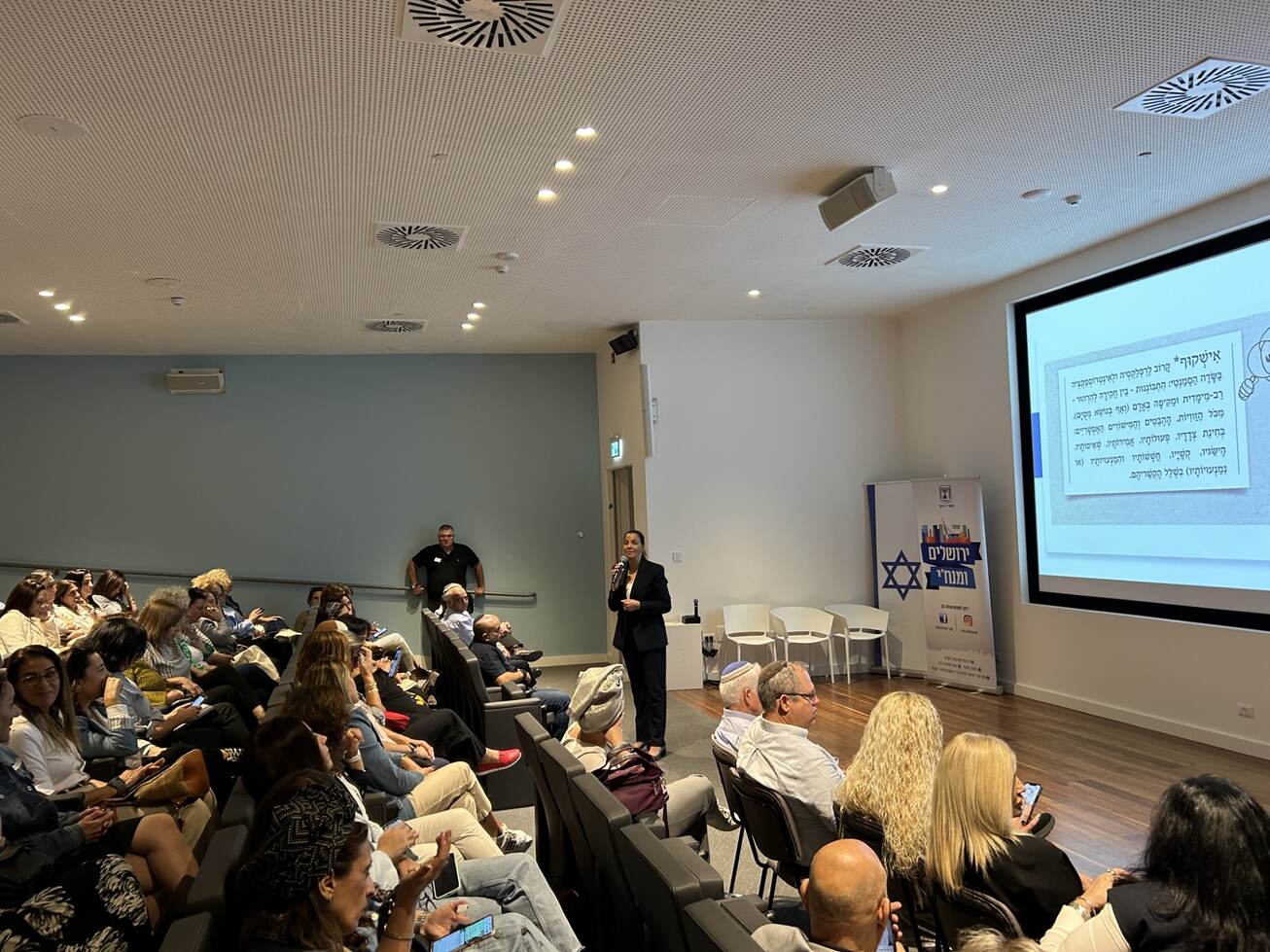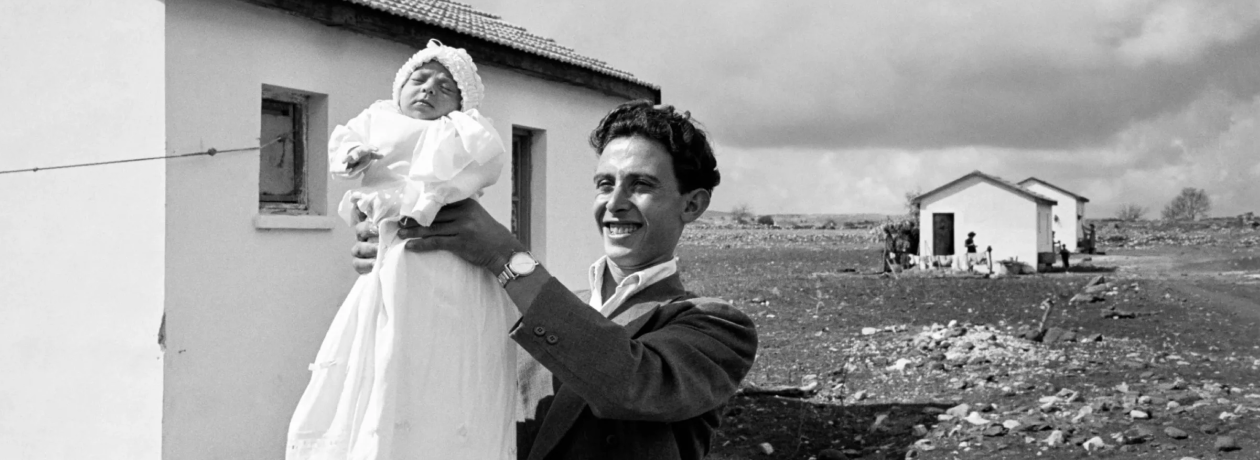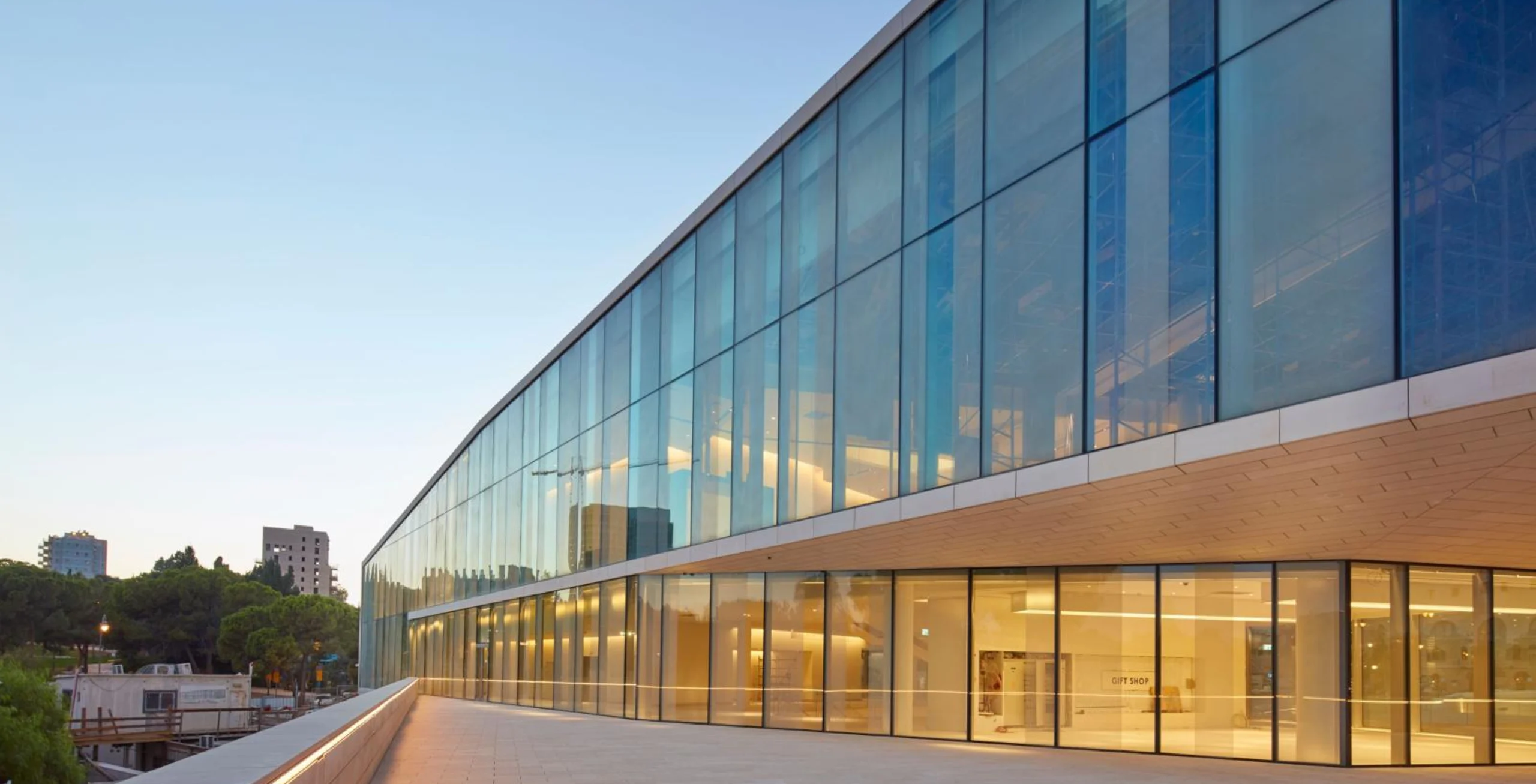
Ministry of Education's Society and Youth Administration
The Society and Youth Administration is dedicated to imparting the cultural heritage of the Jewish people to students across Israel, emphasizing love for the country, commitment to its democratic values, and adherence to its laws. The administration prepares students to be active citizens, that are both knowledgeable and involved, so they can become natural partners in the various educational activities at the Museum of Tolerance Jerusalem.
Opening statements were delivered by Maayan Mor, Director of the Guidance Center for the Jerusalem District of the Youth and Society Administration. She emphasized that the administration members are praying for the safe return of all the hostages and for strengthening interpersonal relationships, which is essential for deepening our collective social responsibility in rebuilding society during times of crisis.
Drora Herman, Director of Youth and Society in the Jerusalem District highlighted a pedagogical strategy based on dialogue, fostering understanding, and bridging divides. She pointed out the importance of returning to the humanistic values upon which the state of Israel was founded. While the prevailing discourse often centered around extremes, most citizens found themselves in the middle, which presented an opportunity for unity and closeness.
Rabbi Benny Lau spoke about the sense of ownership associated with “home” and how it could sometimes lead to a feeling of power that disregards the aspirations of others. He noted that ownership is always shifting, leading to power struggles that contradict the values of hospitality celebrated during Sukkot. He compared the Noah’s Ark to a world left behind in the flood, suggesting that the current citizens remained outside the Ark. He urged educators, to be courageous and foster connections, even when it might conflict with their internal truths.
Meanwhile, Dr. Granit Almog Bareket, an education advisor for the museum, shared a story about Rabbi Zusha, who lived in Ukraine 50 years ago. One day, while on his way to the synagogue, he heard a voice telling him to stop. Rabbi Zusha found himself facing a Russian soldier pointing a gun at him. The rabbi asked what the soldier’s wage would be, and the soldier replied 30 rubles. The rabbi cleverly proposed that the soldier give him 50 rubles every time he stopped him to ask who he was and what he was doing there. This illustrated the need for us to pause and reflect on our identities and direction, especially on the anniversary of the October 7 tragedy and during Sukkot.
Afterward, the administration members participated in an activity related to the “929—Bible Together” initiative, where a different chapter of the Bible is studied daily. They also visited the exhibition Museum’s “6:29: From Darkness to Light,” exhibition which documents the atrocities of October 7 from women first responders and witnesses. The day concluded in the museum’s Sukkah, where participants left messages of hope for a better future of collective action.
You may also like
- Michal Avitan
- Dori Sharvit
- Chaim






